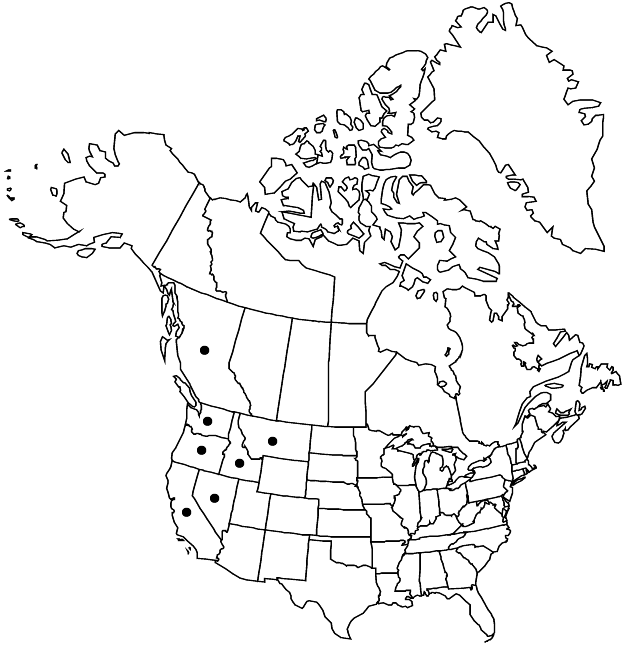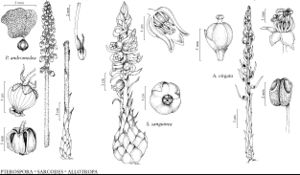Difference between revisions of "Allotropa virgata"
in War Department [U.S.], Pacif. Railr. Rep. 6(3): 80, 81. 1858 ,.
FNA>Volume Importer |
imported>Volume Importer |
||
| (One intermediate revision by the same user not shown) | |||
| Line 1: | Line 1: | ||
{{Treatment/ID | {{Treatment/ID | ||
|accepted_name=Allotropa virgata | |accepted_name=Allotropa virgata | ||
| − | |accepted_authority=Torrey & A. Gray | + | |accepted_authority=Torrey & A. Gray |
|publications={{Treatment/Publication | |publications={{Treatment/Publication | ||
|title=in War Department [U.S.], Pacif. Railr. Rep. | |title=in War Department [U.S.], Pacif. Railr. Rep. | ||
| Line 7: | Line 7: | ||
}} | }} | ||
|common_names=Sugarstick | |common_names=Sugarstick | ||
| + | |special_status={{Treatment/ID/Special_status | ||
| + | |code=F | ||
| + | |label=Illustrated | ||
| + | }}{{Treatment/ID/Special_status | ||
| + | |code=E | ||
| + | |label=Endemic | ||
| + | }} | ||
|basionyms= | |basionyms= | ||
|synonyms= | |synonyms= | ||
| Line 31: | Line 38: | ||
-->{{#Taxon: | -->{{#Taxon: | ||
name=Allotropa virgata | name=Allotropa virgata | ||
| − | |authority=Torrey & A. Gray | + | |authority=Torrey & A. Gray |
|rank=species | |rank=species | ||
|parent rank=genus | |parent rank=genus | ||
| Line 44: | Line 51: | ||
|publication title=in War Department [U.S.], Pacif. Railr. Rep. | |publication title=in War Department [U.S.], Pacif. Railr. Rep. | ||
|publication year= | |publication year= | ||
| − | |special status= | + | |special status=Illustrated;Endemic |
| − | |source xml=https:// | + | |source xml=https://bitbucket.org/aafc-mbb/fna-data-curation/src/2e0870ddd59836b60bcf96646a41e87ea5a5943a/coarse_grained_fna_xml/V8/V8_739.xml |
|subfamily=Ericaceae subfam. Monotropoideae | |subfamily=Ericaceae subfam. Monotropoideae | ||
|genus=Allotropa | |genus=Allotropa | ||
Latest revision as of 22:45, 5 November 2020
Inflorescences 1.5–5 dm; bracts white, thin, 0.5–3 × 0.2–0.9 cm. Flowers: sepals 4–7 × 1–1.5 mm; petals elliptic to orbiculate, concave, 3–6 × 2–4 mm, base not saccate, margins irregular to lacerate; stamens inverted at anthesis, depressed-ovoid, 3–5 mm; anthers 1–1.5 mm diam.; ovary 2–4 × 3–5 mm, glabrous; style 0.5–2 × 1–1.5 mm; stigma 1.5–2.5 mm diam., apex slightly depressed. Capsules 5-segmented, 4–7 × 6–8 mm. Seeds 0.5–1.2 mm. 2n = 26.
Phenology: Flowering late spring–summer.
Habitat: Moist, mixed-deciduous or coniferous forests
Elevation: 70-3100 m
Distribution

B.C., Calif., Idaho, Mont., Nev., Oreg., Wash.
Discussion
Selected References
None.
Lower Taxa
None.
